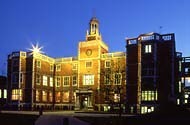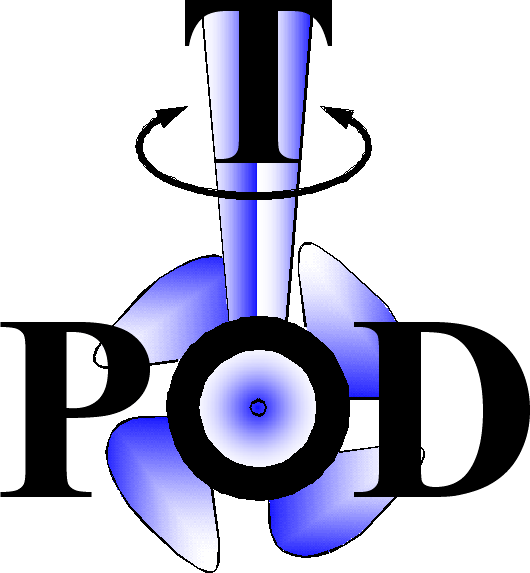Conference Location
The first
conference on the Technological Advances in Podded propulsion will be hosted by
the School of Marine Science and Technology at the University of Newcastle and will use the University campus as a backdrop for
what promises to be an exciting and interesting 3 days. The main reception
including the registration, evening banquet and recital by
Gulsin Onay will take place in the
King's Hall, situated within the Armstrong Building. The welcome reception, in
the evening of the first day, will take place in the historic Turbinia Hall of
the Discovery Museum in
Newcastle, the home of the famous steam launch "Turbinia". The Robert Boyle
Lecture Theatre also situated in the Armstrong Building will be the location for
the conference presentations.
University of
Newcastle
School of
Marine Science
The School of
Marine Science and Technology is the largest and broadest-based marine school in
the UK, covering the fields of marine engineering, marine science, naval
architecture, offshore engineering, coastal management and small craft
technology, and enjoys a substantial international reputation. The School is
formed on excellent foundations established by the prior departments of Marine
Technology, and Marine Science and Coastal Management. For more information
about the Establishment of the UK’s First School of Marine Science and
Technology please download the following presentation from
ENSUS 2002
Marine Technology
The School is housed in the Armstrong
Building, at the heart of the campus, which is also close to the centre of
Newcastle-upon-Tyne. The school is well equipped for a range of practical work
as well as having access to local workshops for periods of hands-on-experience.
In addition it is also the home of the Emerson Cavitation tunnel, the only
University in the UK to operate a Cavitation Tunnel and indeed the only
commercially operated tunnel in the UK. The tunnel was established in 1950 and
continues to gain world wide recognition with new and innovative research work.
For the FASTPOD project the Emerson Cavitation Tunnel will perform pod
maneuvering research. A history of the Emerson Cavitation Tunnel can be down
loaded from the following link: ECT History
The department houses
Cavitation
Tunnel
Towing Tank
Jones (Engine)
Lab
Computing
Marine Science
and Technology Library (MAST)
Marine Biology
We have invested in modern marine
research aquaria in the heart of the University to provide a unique environment
for marine organism and marine environmental research in well equipped
laboratories integrated with the excellent central research facilities of the
University.
The
Ridley Building
Dove Marine
Laboratory
R/V Bernicia


